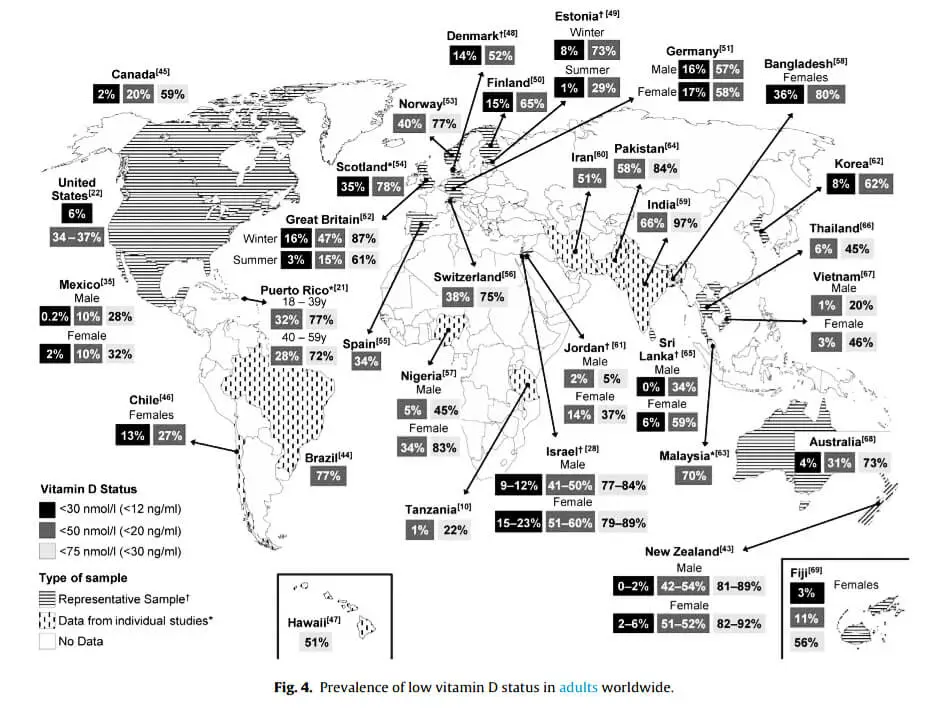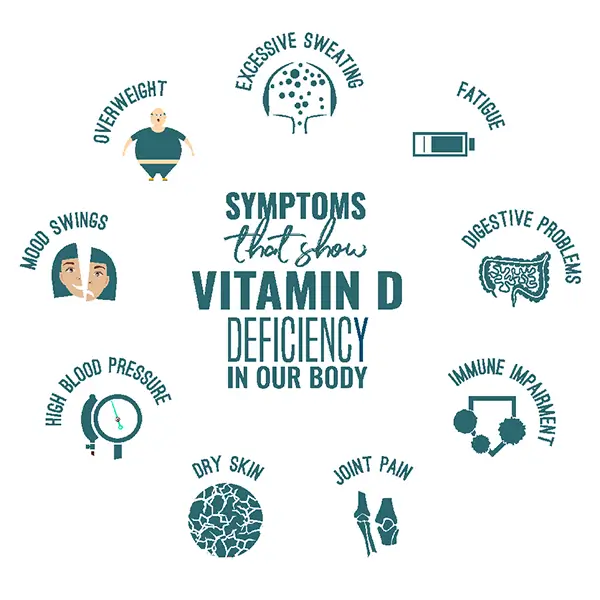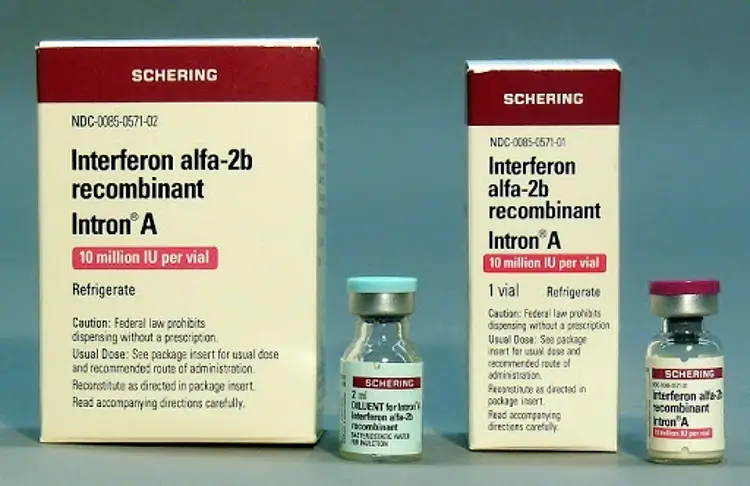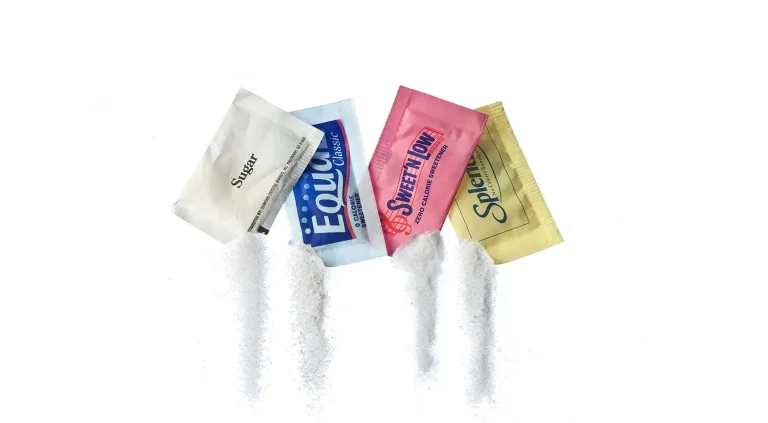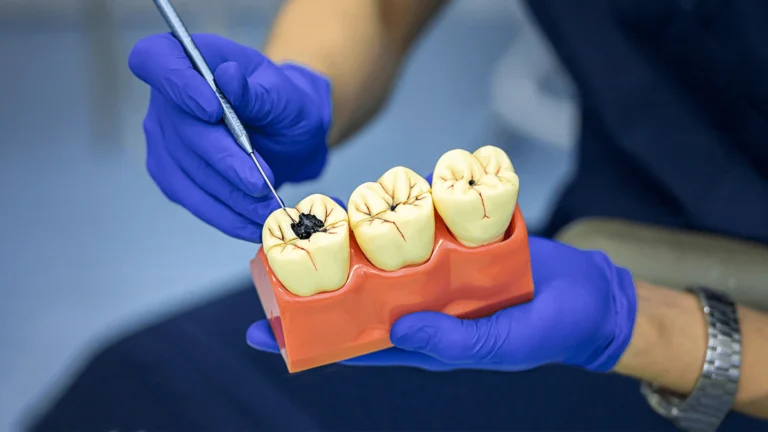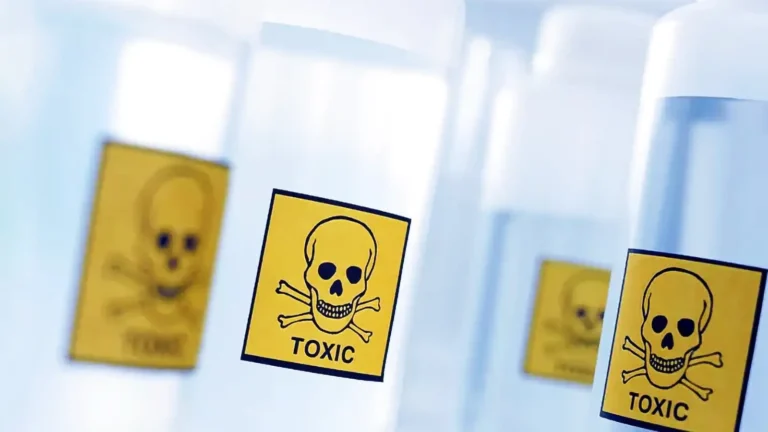Vitamin D deficiency- Risk Factors
There are only two vitamins that are not produced by plants, vitamin D, and the other would-be vitamin B12. Vitamin D deficiency is a real concern.
Milos Pokimica
Written By: Milos Pokimica
Medically Reviewed by: Dr. Xiùying Wáng, M.D.
Updated June 9, 2023There are only two vitamins that are not produced by plants. One is vitamin D that we produce ourselves during sunlight exposure and the other would-be vitamin B12. If you are a vegan it is only these two vitamins that you will have to supplement.
Vitamin D deficiency is one of the most common vitamin deficiencies in the world. In the US around 40% of the population is in the severe vitamin D deficiency category and more than 85% are in the insufficient level category (Pojsupap et al., 2015). Most likely if you do not have a severe deficiency you will still lack adequate and optimal levels of vitamin D for normal body functioning. What causes vitamin D deficiency is the modern way of life, it is a form of maladaptation to our current environment.
Even if you live in a sunny climate most likely you will have it. Despite substantial daily sunlight availability in Africa and the Middle East, people living in these regions are often vitamin D insufficient or deficient ranging from 5% to 80%. Vitamin D insufficiency is especially rampant among African Americans. Even young, healthy blacks do not achieve optimal concentrations at any time of the year. The darker the skin the less UV radiation it will absorb.
We have moved away from the sunny climate of Africa where we have been evolving for 60 million years and now, we are in the cold climate of the northern hemisphere with no sunlight and we live indoors and wear fabric to protect ourselves from cold. As a result, we don’t have adequate vitamin D levels most of the year and we need to supplement with it. Depending on your weight and sun exposure you should take from 4000 to 5000 I.U. You can take too much vitamin D, the upper tolerable level is 10,000 I.U. a day but taking more than 5000 will have little benefit to overall health and can lower vitamin A levels.
To analyze this question a little further the first thing we have to understand is that vitamin D is not really a vitamin. It is a prohormone, a steroid with a hormone-like activity that regulates about 3% of the human genome. More than 2,000 genes overall.
Calcium metabolism is just one of its many functions. For example, it is very important for our immune system regulation. Immune system regulation is very important because the immune system can attack the cells that it should not be attacking and at the same time, it could ignore other dangerous organisms that it should not be ignoring. Without adequate levels of vitamin D, our immune system can become “hyperactive” and will start to attack our own cells. That is a reason why vitamin D deficiency is connected to the development of seventeen different autoimmune diseases. Immune system functioning is also a big factor in the development of cancer and periodontal disease so vitamin D deficiency is also correlated to these diseases as well. It is not, however, correlated with cardiovascular disease and stroke.
So vitamin D deficiency is correlated with an increase in mortality rate and on top of that it is correlated with diseases that affect the quality of life like osteoporosis and asthma. Because in reality, it is a hormone, not a vitamin it is essential for large numbers of functions in the body. The reality is that even if we don’t have full-scale deficiency we might still be at a lower level than optimal and as result increase our risk of cancer, have a problem with the immune system, and on top of that have osteoporosis. Vitamin D deficiency can also affect mood in some people that are prone to depression. The question here is do we need to take it if we are deficient and if we don’t take it, are we going to increase our risk at a real and measurable level?
In this study for example (Mirzakhani et al., 2015) giving asthmatic children between 500 to 2,000 international units of vitamin D3 a day cuts asthma exacerbations by more than half. Because asthma is immune overstimulation vitamin D “calms” the immune system in a way. Asthma affects around 10% of children. One of the reasons asthma and allergies are on the rise is the rising rate of vitamin D deficiency (Raftery et al., 2015). Around 50% of asthma cases are caused by genetic factors, not environmental factors and the same story goes for allergies. In the clinical studies, most people that suffer from allergies and asthma benefited no matter if their disease was caused by genetic factors or not. In scientific terms:
” Vitamin D has shown the ability to inhibit both Th1- and Th2-type responses by suppressing both the production of IL-12-generated IFN-γ as well as IL-4 and IL-4-induced expression of IL-13. This ability could be of importance since the balance of Th1 and Th2 affects the pattern of the immune response. While asthma is thought to be a Th2 dominant condition and is largely characterized by the production of cytokines such as IL-4, IL-5, IL10 and IL-13, and the production of IgE by B cells…”
(Raftery et al., 2015)
Or in normal words, suppressing the production of immune system cytokines and IgE will stop the overstimulation of our immune system and will blunt its “hyperactive” response. Vitamin D basically tells our immune system to “chill out” and also at the same time does not affect normal immune system functioning. It is only a modulation in cases of overstimulation.
Vitamin D is not a cure but it is essential and beneficial supplemental therapy with no side effects except for the overall positive effects on the body. In normal environmental conditions, this supplemental therapy would not be necessary.
If we look at most of the other immune system diseases and the role of vitamin D it would be the same story. For example, vitamin D deficiency is common among patients with Inflammatory Bowel Disease (Fletcher et al., 2019).
“Emerging evidence suggests that vitamin D may have roles in innate and adaptive immunity, in the immune-pathogenesis of Crohn’s disease, prevention of Crohn’s disease-related hospitalizations and surgery, in reducing disease severity and in colon cancer prevention.”
(Fletcher et al., 2019)
Crohn’s disease and ulcerative colitis are chronic inflammatory conditions of the intestine where the immune system attacks its own cells causing severe inflammation. Unlike in allergies immune system in this case will attack its own cells by mistake believing that these cells are infectious and unlike allergies, it would not be “just” inflammation or hyper response but real and permanent damage to our own DNA. Why this happens is a complicated science and in most cases is not genetic but some type of malfunction of the immune system. There are cases of identical twins where one has Chron’s and the other does not. There is a correlation between vitamin D levels and Chron’s disease (Jørgensen et al., 2010). Countries with more sunlight get fewer Chron’s, northern parts of the USA have more cases than southern states, and also clinically when we measure the level of vitamin D in people with the disease it would be the same correlation. But what if you already have it? In this study for example oral supplementation with 1200 IE vitamin D3 significantly increased serum vitamin D levels and significantly reduced the risk of relapse from 29% to 13% (Aranow, 2011). They concluded that:
“Vitamin D has immune-regulatory functions in experimental colitis, and low vitamin D levels are present in Crohn’s disease.”
(Aranow, 2011)
To get the benefits of Inflammatory Bowel Disease you will need at least 5.000 IU of vitamin D a day and this is much more than RDA because this will be the level that will be required to get to the normal levels in the bloodstream in an evolutional sense.
What about normal immune system functioning? Will vitamin D deficiency cause immune suppression and increase the risk of influenza?
“It is now clear that vitamin D has important roles in addition to its classic effects on calcium and bone homeostasis. As the vitamin D receptor is expressed on immune cells (B cells, T cells, and antigen-presenting cells) and these immunologic cells are all are capable of synthesizing the active vitamin D metabolite… Vitamin D can modulate innate and adaptive immune responses. Deficiency in vitamin D is associated with increased autoimmunity as well as increased susceptibility to infection.”
(Gal-Tanamy et al., 2011)
Today it is well accepted in the scientific community and there is a substantial amount of research on the subject that chronic vitamin D deficiency will create more susceptible conditions to the wide range of different types of infections on top of the fact that vitamin D helps in the downregulation of overstimulated immune responses.
Deficiency in vitamin D is therefore associated with both increased autoimmunity as well as increased susceptibility to infection. It is an important vitamin for overall immune functioning and disease prevention, especially in elderly people and children that are already more susceptible to infection. In times of Coronavirus, this knowledge might be of some benefit. In this study for example (Garland et al., 2006) vitamin D supplementation improved biological response when combined with antiviral treatment against the hepatitis C virus.
D3 and interferon‐α synergistically inhibited viral production. Interferon is a natural immune system modulator that our body produces when dealing with infections and it is a standard treatment in most viral treatments including influenza viruses like COVID-19. Conclusion:
“This study demonstrates for the first time a direct antiviral effect of vitamin D in an in vitro infectious virus production system. It proposes an interplay between the hepatic vitamin D endocrine system and HCV, suggesting that vitamin D has a role as a natural antiviral mediator. Importantly, our study implies that vitamin D might have an interferon‐sparing effect, thus improving the antiviral treatment of HCV‐infected patients.”
(Garland et al., 2006)
Unlike interferon, vitamin D3 has no side effects and it is very cheap. Most people with the immune disease will be prescribed interferon in some type for example patients with multiple sclerosis usually will be administered interferon beta to reduce inflammation. Interferon injections are very expensive so they will not be administered on a population-wide scale to lower COVID-19 mortality, but there is a cheap natural alternative in green tea (Juszkiewicz et al., 2019), (Li et al., 2016), (Turner et al., 2014). Immunologists at Harvard University discovered that drinking green tea will dramatically stimulate, in some cases more than 10-fold the increase in our body’s natural interferon production. It is because the amino acid only found in green the called L-Theanine. L-Theanine is broken down in the liver to create ethylamine, a molecule that initiates the response of gamma-delta T cells. The T cells in the blood prompt the release of interferon. In the Corona outbreak, this knowledge might be of some benefit to you as a prevention strategy (Turner et al., 2014). You will need around 30 grams of dried green tea a day to stimulate interferon endogenously. This will be discussed in a separate article. Interferon is a secret Cuba’s ‘wonder drug’ being pitched against coronavirus. It is just an interferon. Interferon Alfa-2B is produced in China, by the Cuban-Chinese joint venture ChangHeber.
Considering vitamin D, the same as in any other immune system disease, it regulates almost all autoimmune diseases. Studies have shown for example that people who have higher levels of vitamin D3 have a lower risk of MS. Therefore, vitamin D supplementation is considered an important modifiable environmental risk factor for the development of multiple sclerosis. Also, studies suggest that for people who already have MS, vitamin D may offer some benefits.
There is a link between cancer and vitamin D as well. Because cancer cells are destroyed by the immune system every single day, malfunctioning of the immune system due to chronic D3 deficiency can result in the accumulation of cancer cells and eventually in the development of cancer. A deficiency of vitamin D might not be the sole reason why someone gets cancer but it will increase the risk of cancer development in individuals that already have a risk (Wang et al., 2014). It can also affect the rate of cancer survival. In one study vitamin D increased the rate of colorectal cancer survival by as much as 47% (Reid et al., 2011). Will this be an effective treatment for all types of cancer I don’t know. Probably knot but it is cheap, health-promoting, side effect free therapy. Actually, it is not a therapy but a form of nutritional intervention in the sense that has an effect on the immune system. Even statistical data shows that there is a significant difference between the colon cancer death rate in different seasons depending on sunlight exposure. It is strongly correlated with some types of cancers like colon, breast, ovarian, and lymphoma, overall 14 different types of cancer are associated with lower vitamin D levels.
Also, any type of injury like surgery, for example, will drop vitamin D levels dramatically sometimes even within a couple of hours (Reid et al., 2011). Why this happens probably because of the influence that vitamin d has on inflammation. Or if we reverse the logic, if inflammation and injury decrease vitamin D levels then low vitamin D levels can cause an increase in inflammation within the body. Then inflammation independently can cause immune system suppression and cancer risk increase and is associated with a wide range of chronic diseases just by itself. If a link between vitamin D deficiency and inflammation is proven to be correct then it would be a serious and independent factor that will have to be taken into account when thinking about risk factors associated with deficiency.
Vitamin D is relatively cheap the only question really is how much should we take, in what form, and do we need to take it for an entire year if we have adequate sunlight exposure during the summer?
References:
- Pojsupap, S., Iliriani, K., Sampaio, T. Z., O’Hearn, K., Kovesi, T., Menon, K., & McNally, J. D. (2015). Efficacy of high-dose vitamin D in pediatric asthma: a systematic review and meta-analysis. The Journal of asthma : official journal of the Association for the Care of Asthma, 52(4), 382–390. https://doi.org/10.3109/02770903.2014.980509
- Mirzakhani, H., Al-Garawi, A., Weiss, S. T., & Litonjua, A. A. (2015). Vitamin D and the development of allergic disease: how important is it?. Clinical and experimental allergy : journal of the British Society for Allergy and Clinical Immunology, 45(1), 114–125. https://doi.org/10.1111/cea.12430
- Raftery, T., & O’Sullivan, M. (2015). Optimal vitamin D levels in Crohn’s disease: a review. The Proceedings of the Nutrition Society, 74(1), 56–66. https://doi.org/10.1017/S0029665114001591
- Fletcher, J., Cooper, S. C., Ghosh, S., & Hewison, M. (2019). The Role of Vitamin D in Inflammatory Bowel Disease: Mechanism to Management. Nutrients, 11(5), 1019. https://doi.org/10.3390/nu11051019
- Jørgensen, S. P., Agnholt, J., Glerup, H., Lyhne, S., Villadsen, G. E., Hvas, C. L., Bartels, L. E., Kelsen, J., Christensen, L. A., & Dahlerup, J. F. (2010). Clinical trial: vitamin D3 treatment in Crohn’s disease – a randomized double-blind placebo-controlled study. Alimentary pharmacology & therapeutics, 32(3), 377–383. https://doi.org/10.1111/j.1365-2036.2010.04355.x
- Aranow C. (2011). Vitamin D and the immune system. Journal of investigative medicine : the official publication of the American Federation for Clinical Research, 59(6), 881–886. https://doi.org/10.2310/JIM.0b013e31821b8755
- Gal-Tanamy, M., Bachmetov, L., Ravid, A., Koren, R., Erman, A., Tur-Kaspa, R., & Zemel, R. (2011). Vitamin D: an innate antiviral agent suppressing hepatitis C virus in human hepatocytes. Hepatology (Baltimore, Md.), 54(5), 1570–1579. https://doi.org/10.1002/hep.24575
- Garland, C. F., Garland, F. C., Gorham, E. D., Lipkin, M., Newmark, H., Mohr, S. B., & Holick, M. F. (2006). The role of vitamin D in cancer prevention. American journal of public health, 96(2), 252–261. https://doi.org/10.2105/AJPH.2004.045260
- Wang, B., Jing, Z., Li, C., Xu, S., & Wang, Y. (2014). Blood 25-hydroxyvitamin D levels and overall mortality in patients with colorectal cancer: a dose-response meta-analysis. European journal of cancer (Oxford, England : 1990), 50(12), 2173–2175. https://doi.org/10.1016/j.ejca.2014.05.004
- Reid, D., Toole, B. J., Knox, S., Talwar, D., Harten, J., O’Reilly, D. S., Blackwell, S., Kinsella, J., McMillan, D. C., & Wallace, A. M. (2011). The relation between acute changes in the systemic inflammatory response and plasma 25-hydroxyvitamin D concentrations after elective knee arthroplasty. The American journal of clinical nutrition, 93(5), 1006–1011. https://doi.org/10.3945/ajcn.110.008490
- Rahayu, R. P., Prasetyo, R. A., Purwanto, D. A., Kresnoadi, U., Iskandar, R. P. D., & Rubianto, M. (2018). The immunomodulatory effect of green tea (Camellia sinensis) leaves extract on immunocompromised Wistar rats infected by Candida albicans. Veterinary world, 11(6), 765–770. https://doi.org/10.14202/vetworld.2018.765-770
- Juszkiewicz, A., Glapa, A., Basta, P., Petriczko, E., Żołnowski, K., Machaliński, B., Trzeciak, J., Łuczkowska, K., & Skarpańska-Stejnborn, A. (2019). The effect of L-theanine supplementation on the immune system of athletes exposed to strenuous physical exercise. Journal of the International Society of Sports Nutrition, 16(1), 7. https://doi.org/10.1186/s12970-019-0274-y
- Li, C., Tong, H., Yan, Q., Tang, S., Han, X., Xiao, W., & Tan, Z. (2016). L-Theanine Improves Immunity by Altering TH2/TH1 Cytokine Balance, Brain Neurotransmitters, and Expression of Phospholipase C in Rat Hearts. Medical science monitor : international medical journal of experimental and clinical research, 22, 662–669. https://doi.org/10.12659/msm.897077
- Turner, R. B., Felton, A., Kosak, K., Kelsey, D. K., & Meschievitz, C. K. (1986). Prevention of experimental coronavirus colds with intranasal alpha-2b interferon. The Journal of infectious diseases, 154(3), 443–447. https://doi.org/10.1093/infdis/154.3.443
- Palacios, C., & Gonzalez, L. (2014). Is vitamin D deficiency a major global public health problem?. The Journal of steroid biochemistry and molecular biology, 144 Pt A, 138–145. https://doi.org/10.1016/j.jsbmb.2013.11.003
Do you have any questions about nutrition and health?
I would love to hear from you and answer them in my next post. I appreciate your input and opinion and I look forward to hearing from you soon. I also invite you to follow us on Facebook, Instagram, and Pinterest for more diet, nutrition, and health content. You can leave a comment there and connect with other health enthusiasts, share your tips and experiences, and get support and encouragement from our team and community.
I hope that this post was informative and enjoyable for you and that you are prepared to apply the insights you learned. If you found this post helpful, please share it with your friends and family who might also benefit from it. You never know who might need some guidance and support on their health journey.
– You Might Also Like –

Learn About Nutrition
Milos Pokimica is a doctor of natural medicine, clinical nutritionist, medical health and nutrition writer, and nutritional science advisor. Author of the book series Go Vegan? Review of Science, he also operates the natural health website GoVeganWay.com
Medical Disclaimer
GoVeganWay.com brings you reviews of the latest nutrition and health-related research. The information provided represents the personal opinion of the author and is not intended nor implied to be a substitute for professional medical advice, diagnosis, or treatment. The information provided is for informational purposes only and is not intended to serve as a substitute for the consultation, diagnosis, and/or medical treatment of a qualified physician or healthcare provider.NEVER DISREGARD PROFESSIONAL MEDICAL ADVICE OR DELAY SEEKING MEDICAL TREATMENT BECAUSE OF SOMETHING YOU HAVE READ ON OR ACCESSED THROUGH GoVeganWay.com
NEVER APPLY ANY LIFESTYLE CHANGES OR ANY CHANGES AT ALL AS A CONSEQUENCE OF SOMETHING YOU HAVE READ IN GoVeganWay.com BEFORE CONSULTING LICENCED MEDICAL PRACTITIONER.
In the event of a medical emergency, call a doctor or 911 immediately. GoVeganWay.com does not recommend or endorse any specific groups, organizations, tests, physicians, products, procedures, opinions, or other information that may be mentioned inside.
Editor Picks –
Milos Pokimica is a health and nutrition writer and nutritional science advisor. Author of the book series Go Vegan? Review of Science, he also operates the natural health website GoVeganWay.com
Latest Articles –
Top Health News — ScienceDaily
- The overlooked nutrition risk of Ozempic and Wegovyon February 4, 2026
Popular weight-loss drugs like Ozempic and Wegovy can dramatically curb appetite, but experts warn many users are flying blind when it comes to nutrition. New research suggests people taking these medications may not be getting enough guidance on protein, vitamins, and overall diet quality, increasing the risk of muscle loss and nutrient deficiencies.
- A 25-year study found an unexpected link between cheese and dementiaon February 4, 2026
A massive Swedish study tracking nearly 28,000 people for 25 years found an unexpected link between full-fat dairy and brain health. Among adults without a genetic risk for Alzheimer’s, eating more full-fat cheese was associated with a noticeably lower risk of developing the disease, while higher cream intake was tied to reduced dementia risk overall. The findings challenge decades of low-fat dietary advice but come with important caveats.
- MIT’s new brain tool could finally explain consciousnesson February 4, 2026
Scientists still don’t know how the brain turns physical activity into thoughts, feelings, and awareness—but a powerful new tool may help crack the mystery. Researchers at MIT are exploring transcranial focused ultrasound, a noninvasive technology that can precisely stimulate deep regions of the brain that were previously off-limits. In a new “roadmap” paper, they explain how this method could finally let scientists test cause-and-effect in consciousness research, not just observe […]
- Why heart disease risk in type 2 diabetes looks different for men and womenon February 4, 2026
Scientists are digging into why heart disease risk in type 2 diabetes differs between men and women—and sex hormones may be part of the story. In a large Johns Hopkins study, men with higher testosterone had lower heart disease risk, while rising estradiol levels were linked to higher risk. These hormone effects were not seen in women. The results point toward more personalized approaches to heart disease prevention in diabetes.
- Sound machines might be making your sleep worseon February 4, 2026
Sound machines may not be the sleep saviors many believe. Researchers found that pink noise significantly reduced REM sleep, while simple earplugs did a better job protecting deep, restorative sleep from traffic noise. When pink noise was combined with outside noise, sleep quality dropped even further. The results suggest that popular “sleep sounds” could be doing more harm than good—particularly for kids.
- This unexpected plant discovery could change how drugs are madeon February 3, 2026
Plants make chemical weapons to protect themselves, and many of these compounds have become vital to human medicine. Researchers found that one powerful plant chemical is produced using a gene that looks surprisingly bacterial. This suggests plants reuse microbial tools to invent new chemistry. The insight could help scientists discover new drugs and produce them more sustainably.
- A hidden cellular process may drive aging and diseaseon February 3, 2026
As we age, our cells don’t just wear down—they reorganize. Researchers found that cells actively remodel a key structure called the endoplasmic reticulum, reducing protein-producing regions while preserving fat-related ones. This process, driven by ER-phagy, is tied to lifespan and healthy aging. Because these changes happen early, they could help trigger later disease—or offer a chance to stop it.
PubMed, #vegan-diet –
- Diet type and the oral microbiomeon February 2, 2026
CONCLUSION: The diet-oral microbiome-systemic inflammation axis is bidirectional and clinically relevant. Understanding both direct ecological regulation and indirect metabolic effects is essential to support precision nutrition strategies aimed at maintaining oral microbial balance and systemic inflammatory risk mitigation.
- Consensus document on healthy lifestyleson January 22, 2026
Proteins are a group of macronutrients that are vital to our lives, as they perform various functions, including structural, defensive and catalytic. An intake of 1.0-1.2 g/kg/body weight per day would be sufficient to meet our needs. Carbohydrate requirements constitute 50 % of the total caloric value and should be obtained mainly in the form of complex carbohydrates. In addition, a daily intake of both soluble and insoluble fiber is necessary. Regular consumption of extra virgin olive oil […]
- Vitamin B12 and D status in long-term vegetarians: Impact of diet duration and subtypes in Beijing, Chinaon January 21, 2026
CONCLUSIONS: This study reveals a dual challenge among Beijing long-term vegetarians: vitamin B12 deficiency was strongly associated with the degree of exclusion of animal products from the diet (veganism), while vitamin D deficiency was highly prevalent and worsened with longer diet duration. The near-universal vitamin D deficiency observed in this study suggests that, in the Beijing context, the risk may extend beyond dietary choice, potentially reflecting regional environmental factors;…
- Nutritional evaluation of duty meals provided to riot police forces in Germanyon January 13, 2026
Background: The primary role of the German riot police is maintaining internal security. Due to challenging working conditions, riot police forces face an elevated risk of various diseases. During duty, forces are provided with meals. A balanced diet can reduce the risk of some of these diseases and contribute to health-promoting working conditions. Aim: First evaluation of the nutritional quality of duty meals in Germany based on German Nutrition Society recommendations (DGE). Methods: In…
- Iodineon January 1, 2006
Iodine is an essential trace nutrient for all infants that is a normal component of breastmilk. Infant requirements are estimated to be 15 mcg/kg daily in full-term infants and 30 mcg/kg daily in preterm infants.[1] Breastmilk iodine concentration correlates well with maternal urinary iodine concentration and may be a useful index of iodine sufficiency in infants under 2 years of age, but there is no clear agreement on a value that indicates iodine sufficiency, and may not correlate with […]
Random Posts –
Featured Posts –
Latest from PubMed, #plant-based diet –
- From paddy soil to dining table: biological biofortification of rice with zincby Lei Huang on February 4, 2026
One-third of paddy soils are globally deficient in zinc (Zn) and 40% of Zn loss in the procession from brown rice to polished rice, which results in the global issue of hidden hunger, e.g., the micronutrient deficiencies in the rice-based population of developing countries. In the recent decades, biofortification of cereal food crops with Zn has emerged as a promising solution. Herein, we comprehensively reviewed the entire process of Zn in paddy soil to human diet, including the regulatory…
- Molecular Characterization of Tobacco Necrosis Virus A Variants Identified in Sugarbeet Rootsby Alyssa Flobinus on February 3, 2026
Sugarbeet provides an important source of sucrose; a stable, environmentally safe, and low-cost staple in the human diet. Viral diseases arising in sugarbeet ultimately impact sugar content, which translates to financial losses for growers. To manage diseases and prevent such losses from occurring, it is essential to characterize viruses responsible for disease. Recently, our laboratory identified a tobacco necrosis virus A variant named Beta vulgaris alphanecrovirus 1 (BvANV-1) in sugarbeet…
- Nutrition in early life interacts with genetic risk to influence preadult behaviour in the Raine Studyby Lars Meinertz Byg on February 3, 2026
CONCLUSIONS: Nutrition in early life and psychiatric genetic risk may interact to determine lasting child behaviour. Contrary to our hypothesis, we find dietary benefits in individuals with lower ADHD PGS, necessitating replication. We also highlight the possibility of including genetics in early nutrition intervention trials for causal inference.
- Effect of the gut microbiota on insect reproduction: mechanisms and biotechnological prospectsby Dilawar Abbas on February 2, 2026
The insect gut microbiota functions as a multifunctional symbiotic system that plays a central role in host reproduction. Through the production of bioactive metabolites, gut microbes interact with host hormonal pathways, immune signaling, and molecular regulatory networks, thereby shaping reproductive physiology and fitness. This review summarizes recent advances in understanding how gut microbiota regulate insect reproduction. Accumulating evidence demonstrates that microbial metabolites…
- Rationale and design of a parallel randomised trial of a plant-based intensive lifestyle intervention for diabetes remission: The REmission of diabetes using a PlAnt-based weight loss InteRvention…by Brighid McKay on February 2, 2026
CONCLUSIONS: This trial will provide high-quality clinical evidence on the use of plant-based ILIs to address the epidemics of obesity and diabetes to inform public health policies and programs in Canada and beyond.
- Diet type and the oral microbiomeby Daniel Betancur on February 2, 2026
CONCLUSION: The diet-oral microbiome-systemic inflammation axis is bidirectional and clinically relevant. Understanding both direct ecological regulation and indirect metabolic effects is essential to support precision nutrition strategies aimed at maintaining oral microbial balance and systemic inflammatory risk mitigation.
